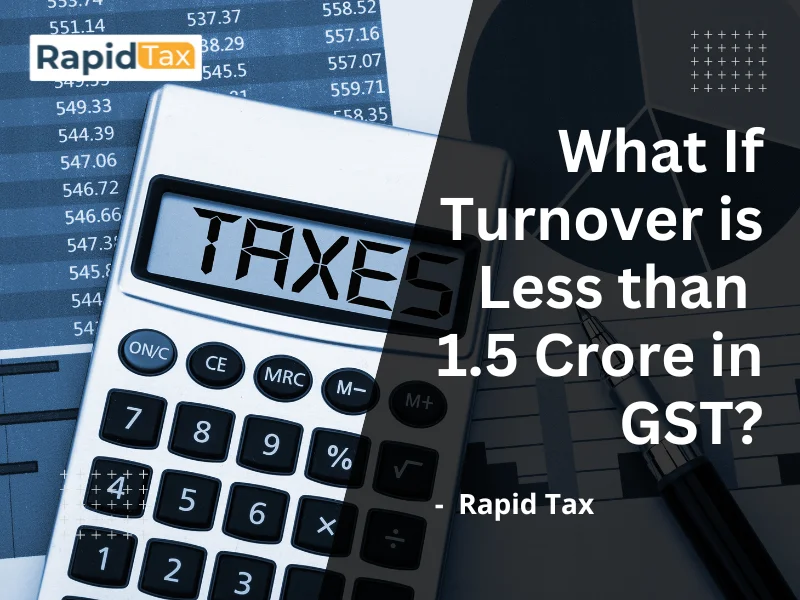What If Turnover is Less Than 1.5 Crore in GST?

If you are a business owner in India, you are likely familiar with the Goods and Services Tax (GST) system. GST is a tax system that was implemented in India in 2017, which replaced many different indirect taxes that were previously levied by the state and central governments. The turnover threshold for GST registration was set at Rs. 20 lakh initially, but it has been increased to Rs. 40 lakh for small businesses. However, if your turnover is less than Rs. 1.5 crore, there are some important considerations you should keep in mind.
One of the benefits of having a turnover of less than Rs. 1.5 crore is that you are not required to register for GST. However, if you do choose to register voluntarily, you may be eligible for certain benefits, such as the ability to claim input tax credit. Input tax credit allows you to claim a credit for the GST paid on your purchases, which can help reduce your overall tax liability.
Another benefit of registering for GST voluntarily is that it can help make your business more credible and professional in the eyes of customers and suppliers. This can be especially important if you are a new or small business that is looking to establish itself in the market.
However, it is important to keep in mind that if you do register for GST voluntarily, you will be required to file regular returns and comply with all of the other requirements of the GST system. This can include collecting and remitting GST on your sales, maintaining proper records, and filing accurate and timely returns.
In summary, if your turnover is less than Rs. 1.5 crore, you are not required to register for GST. However, there may be some benefits to registering voluntarily, such as the ability to claim input tax credit and the professional credibility that comes with being registered. Ultimately, the decision to register for GST should be based on your individual business needs and goals.
Get Started!
Recent Posts
Is TCS deducted including GST?Is TDS Deducted Including GST?
What is no Minimum Turnover for GST?
Is GST Required Below 40 Lakhs?
Is GST Return Monthly or Quarterly?
How much does CA charge for GST Return?
Can We File GST Return Without CA?
What is the GST Turnover limit?
Who is Eligible for GST Return?
What is GST and GST Return Filing?